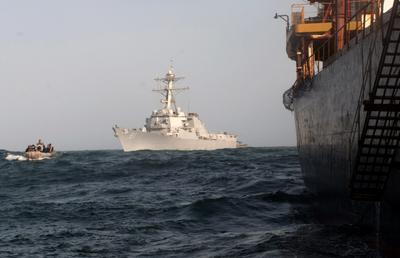These issues were highlighted in March 2009 when the USNS Impeccable was harassed by five Chinese vessels while operating in China’s exclusive economic zone south of Hainan Island. Following US protests China responded that the Impeccable was operating in violation of both Chinese and international law.
This incident highlighted the legal uncertainty arising from the fact the US remains outside of the global legally agreed framework for the management of the world’s oceans: the 1982 United Nations Convention on the Law of the Sea (UNCLOS). While the US supported the Convention in the 1970s, in 1981 the Reagan administration withdrew that support based on objections to provisions dealing with the deep seabed. Notwithstanding 1994 modifications designed to directly address some of those concerns, the US has never acceded to the Convention. This is in spite of support for the Convention from both the Bush and Obama administrations and efforts throughout 2012 to build momentum for a US Senate vote on accession.
The US position on the law of the sea in general, and on the 1982 Convention in particular, is creating tension in the South China Sea. That President Obama and Secretary of State Clinton have referred over the past two years to respect for the freedom of navigation, and called for settlement of South China Sea disputes consistently with international law, has only served to highlight how equivocal the US position on the law of the sea is. A total of 162 states have now endorsed the Convention, including all of the major Western powers except the US. The major East Asian and ASEAN powers are also parties. Both Japan and China ratified in 1996.
As China emerges as a global power, and one with a significant maritime domain, it is perhaps inevitable that issues will arise between its interpretation of the law of the sea and that of other states. This has already occurred in the South China Sea, where China is at odds with maritime neighbours such as the Philippines and Vietnam. But, with all three countries parties to UNCLOS, there remains a common legal framework for confidence building and ultimately dispute resolution. With the US not a party to the Convention, there remains considerable scope for disagreement as to precisely what obligations are binding upon each country.
Some of the objections that have resonated in the US Senate rest on national security grounds and fears that undue restraints may be placed upon US naval freedoms. But the freedom of navigation is deeply embedded in the Convention, partly due to vigorous US advocacy during the negotiations in the 1970s. These principles guarantee the freedom of movement of all ships, including warships, through the high seas, international straits, and archipelagic waters — all of which is directly relevant to the situation in the South China Sea. US trade and commerce with China, and Asia more generally, is directly reliant upon these freedoms of navigation.
Much would therefore be gained by the US moving toward adoption of the Convention. Uncertainty would immediately be resolved as to the rights and duties of the US under the law of the sea and it would be on a level playing field in terms of the basic legal framework that exists between it and China. In the context of the South China Sea, states would no longer be able to argue that the US, as a non-party to the Convention, was not entitled to enjoy certain navigational rights and freedoms. An agreed interpretation on key components of the law of the sea between the two maritime powers would assist in bringing about stability and confidence in their relations in the South China Sea, and diminish the prospect of contentious matters escalating into major disputes, which would have ramifications not only for both states but also the region.
Ultimately, a change in the US position on the law of the sea may arise from a combination of factors. At present the US is quickly being left behind as a host of coastal states begin to assert claims to an outer continental shelf consistent with Convention entitlements. The US is also the only Arctic state not a party to the Convention, thereby exposing it to further legal uncertainty in a region where the law of the sea will dominate future governance. These factors, combined with the strategic dimension of legal certainty for US operations in the South China Sea, render the case for US acceptance of the Convention compelling.
Donald R. Rothwell is Professor of International Law at the ANU College of Law, the Australian National University, and a specialist in the law of the sea.

